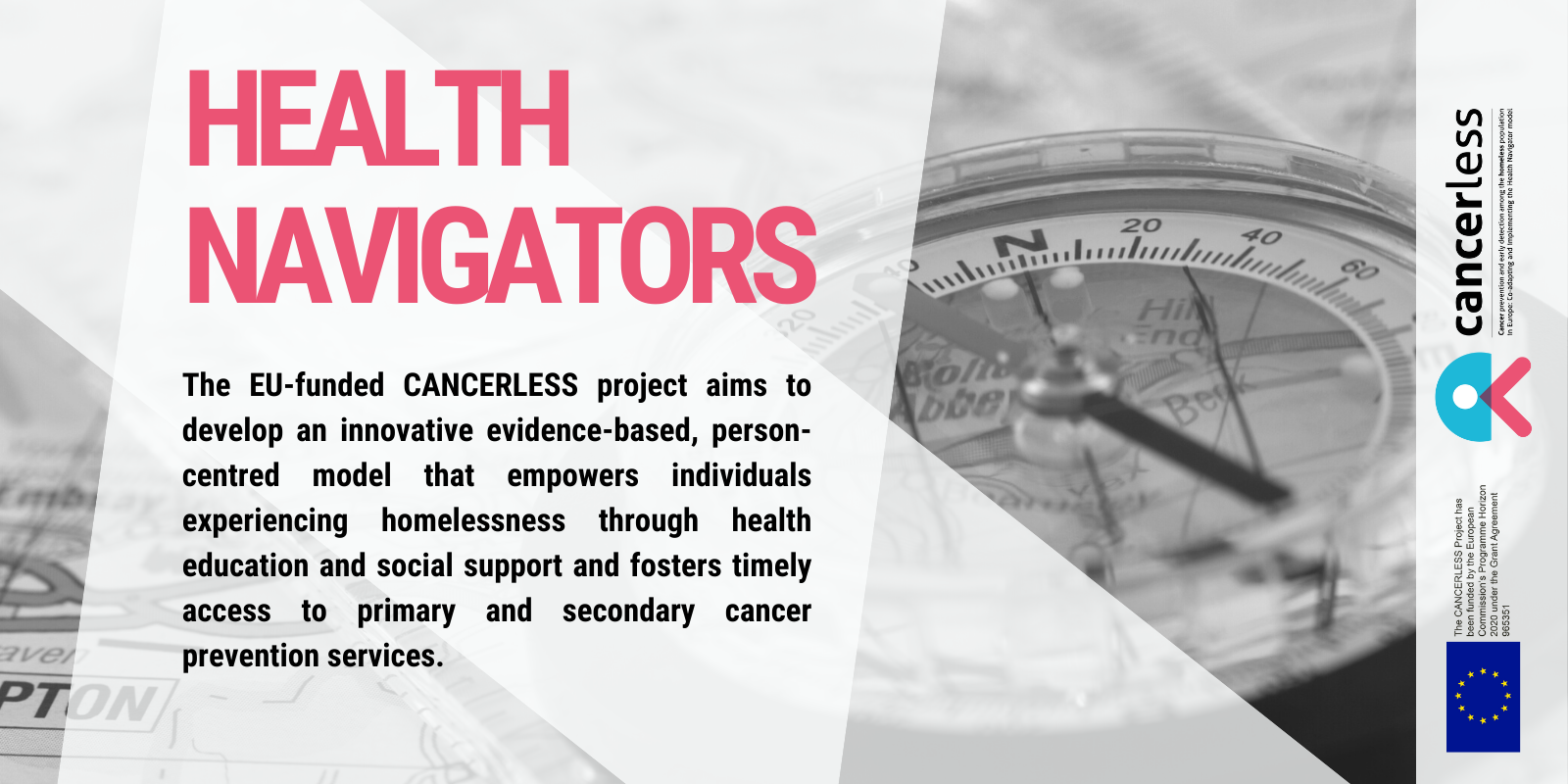The EU-funded CANCERLESS project aims to develop an innovative evidence-based, person-centred model that empowers individuals experiencing homelessness through health education and social support and fosters timely access to primary and secondary cancer prevention services.
Therefore, the CANCERLESS project builds upon two previous interventions to address cancer health inequalities: the “Patient Navigator”, which has been well established and proven effective across the continuum of cancer care for those patients with barriers to care as well as the “Patient Empowerment”, showing improvements in persons’ outcomes. However, even the best interventions often yield poor results due to problems with implementation, therefore, an implementation science-based approach is needed to promote authentic adoption of evidence-based solutions for cancer prevention and early detection in individuals experiencing homelessness, thereby increasing the chances for its successful implementation in real-life settings across health and social care systems in Europe.
CANCERLESS approach for capacity building
The CANCERLESS Consortium understands capacity building as defined by the United Nations which characterizes capacity building as the process of developing and strengthening the skills, instincts, abilities, processes, and resources that organizations and communities need to survive, adapt, and thrive in a fast-changing world. The CANCERLESS Consortium is committed to generate and champion for person-centred models of cancer prevention and care, going beyond the pilot implementation to changing health and care systems and service delivery.
CANCERLESS capacity building, consisted of phases (needs assessment, formulation of strategies, implementation of actions, monitoring and evaluation, re-planning) which are closely linked, and not necessarily chronically sequenced.
For the successful implementation of the Health Navigator Model, capacity building is understood as broader than just “training”, and the CANCERLESS Consortium understands that capacity building must take place on three levels to be effective and sustainable:
- The systems (or institutional) level, which includes regulatory frameworks, policies and frame conditions that support or hamper the achievement of certain policy objectives.
- The organizational (or entity) level, i.e., the structure of organisations, the decision-making processes within organisations, procedures and working mechanisms, management instruments, the relationships, and networks between organisations.
- The individual level, referring to individual skills and qualifications, knowledge, attitudes, work ethics and motivations of the people working in organisations.
We operate with the basic understanding that these three levels are interdependent and changes on one level will have an impact on the other levels. Thus, CANCERLESS has focused its capacity building at each of these levels, and at all pilot sites in order to develop the sustainability of the Health Navigator Model, not only during the pilot implementation but also to ensure the principles of person-centered care for people experiencing homelessness remain in care service delivery past the projects lifecycle.
Organizational and system level
Each pilot site identified key stakeholders and established a plan for the implementation of the intervention in their contexts. Further information on the model was provided to local organizations and collaboration agreements established between health and social care organisations in order to pilot the Health Navigator Model. Contact points and referrals were established with them. Additionally, communication and outreach on the project has been shared with relevant political national and international (European Commission) stakeholders.
Individual level
Based on the results of the co-design sessions a training course for navigators was developed with 5 modules under the following structure:
- CANCERLESS, Health Navigator Model & Pilot Plan
- Population-specific knowledge
- Communication and interpersonal skills
- Cancer/health education
- Local context and resources (including existing preventative services, screening protocols, for example)
Next steps:
Based on the generated results, CANCERLESS consortium will generate evidence-based policy-recommendations addressing the system-level to support the speeding and scaling-up of the Health Navigator Model in Europe.

